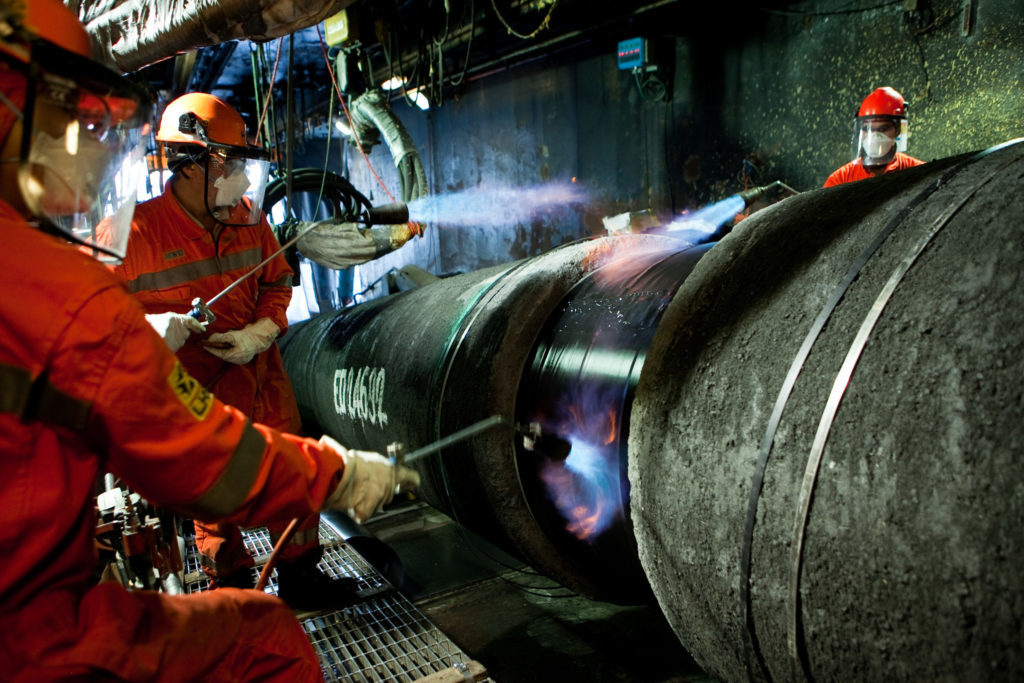
The U.S. stepped up its opposition to the Nord Stream 2 natural gas pipeline linking Russia and Germany, saying the project raises security concerns and that it could draw U.S. sanctions.
The U.S. opposes the project because it will increase Europe’s reliance on Russia for gas supplies. It’s also worried the pipeline could open ways for Russia to install undersea surveillance equipment in the Baltic Sea, said Sandra Oudkirk, U.S. Deputy Assistant Secretary of State for Energy diplomacy.
The U.S. issued the warning just as European Union policy makers said they’re ready to erect bulwarks to shield companies from U.S. sanctions directed at Iran. Europe’s mood is shifting from shock at Trump’s “America First” agenda to a resolve to close ranks and assert its own position. U.S. threats to Nord Stream 2, which has split eastern and western EU states, could impact companies in Austria, France, Germany and the Netherlands.
Royal Dutch Shell Plc, BASF SE’s Wintershall unit, Uniper SE, OMV AG and Engie SA have agreed to provide Russia’s Gazprom PJSC with financing for the project.
Speaking to reporters in Berlin, Oudkirk said the project could be sanctioned under a bill passed in August 2017. Congress passed the legislation in response to Russia’s intervention in Ukraine and its suspected U.S. election interference, giving the government authority to act against any Russian energy projects including Nord Stream 2, the envoy said.
“That means that any pipeline project, and there are multiple pipeline projects in the world that are potentially covered, is at an elevated sanctions risk,” Oudkirk said.
Oudkirk said the U.S. also opposed the pipeline due to security concerns, adding it would allow Russia to place listening devices along the pipeline’s route, although she declined to comment on specific devices.
The U.S. official pushed back against suggestions Ukraine could receive guarantees to protect it from any loss of revenues if Nord Stream 2 diverts gas flows. German Chancellor Angela Merkel last week said that the pipeline project was impossible if it leaves Ukraine vulnerable to reduced gas transit revenue, implying some form of guarantee agreement was under consideration.
“We don’t believe guarantees are enforceable,” Oudkirk said, adding that Russia has made clear its intentions to use the project to bypass Ukraine.
She also brushed aside as “false” the suggestion that the U.S. is opposing the pipeline to ensure the U.S. has Europe as a potential market liquefied natural gas. She noted the U.S. has long-opposed projects that would make Europe more dependent on Russian energy sources.
Addressing alternatives to Nord Stream 2, Oudkirk said Europe technological breakthroughs would eventually allow Europe to source gas from the Caspian Sea, Eastern Mediterranean, Algeria and eventually the U.S. and Australia.
“We’re neutral on the means of conveyance,” the official said.
Recommended for you
